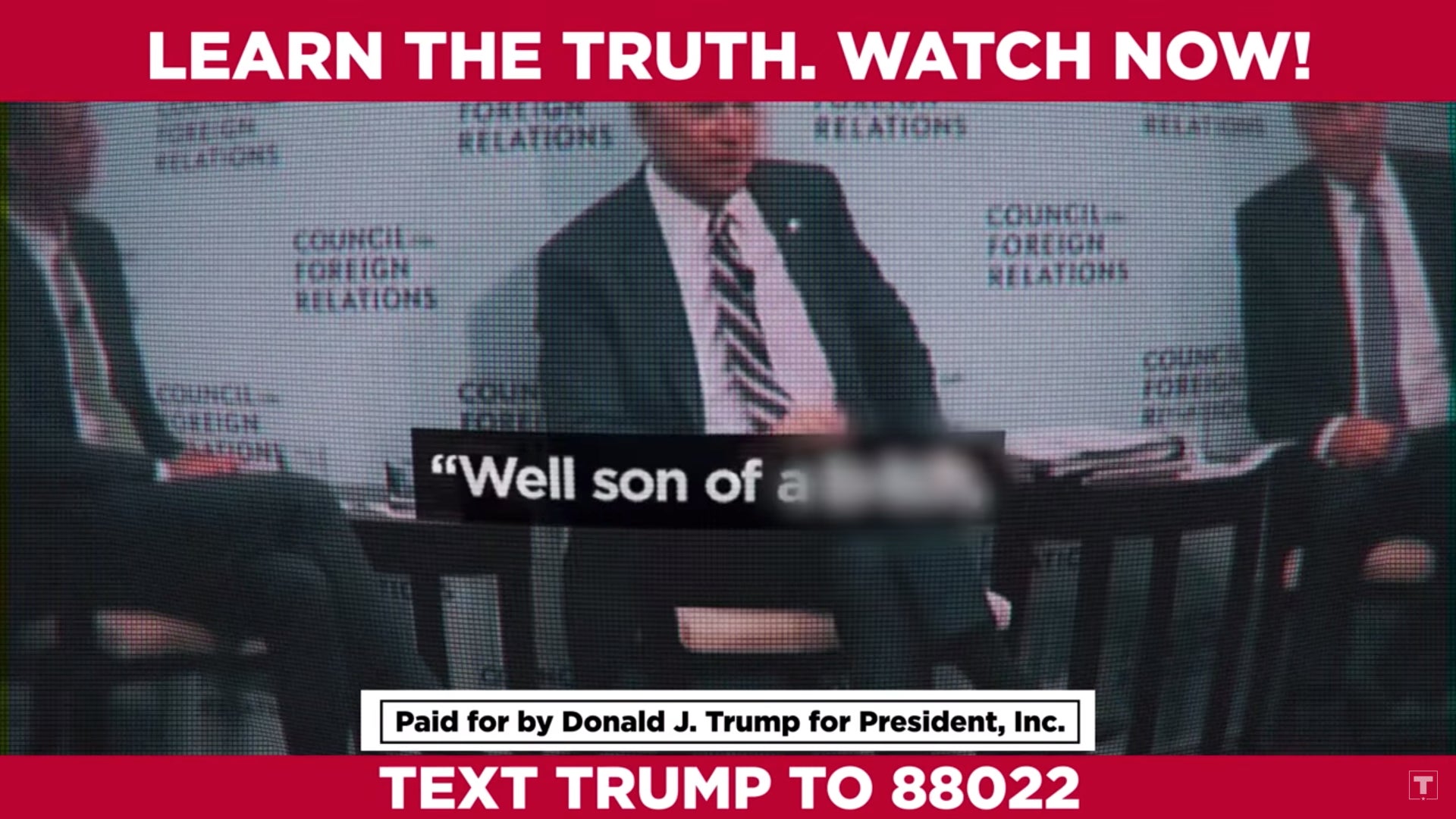While everyone was looking at Facebook, Trump’s false Biden ad appeared more often on YouTube
Facebook has been under fire for its policy of accepting a campaign ad from President Trump’s reelection campaign that is widely regarded as provably false. But Google has slipped under the radar: the ad was shown more on YouTube than on Facebook.


Facebook has been under fire for its policy of accepting a campaign ad from President Trump’s reelection campaign that is widely regarded as provably false. But Google has slipped under the radar: the ad was shown more on YouTube than on Facebook.
The Facebook ad was shown at least 4.6 million times, and no more than 11.3 million times. But the YouTube ad was shown at least 12 million times. That’s according to the transparency tools on both platforms.
The controversial ad, which makes claims about Joe Biden’s activity in Ukraine when he was vice president, has been rated false by Politifact. CNN refused to air the ad, citing its falsity, but other TV stations have run it. The Trump campaign has said that the ad is true, but without citing evidence for its main claims.
YouTube likely took far more money to run the Trump campaign’s ad than Facebook did, though the platforms’ voluntary political ad transparency databases don’t report data with enough granularity to be sure.
According to Facebook’s disclosure database, the Trump campaign spent between $31,500 and $121,757 on the ad.
According to Google’s database, which includes data about YouTube ads, the Trump campaign spent at least $102,000—but possibly far more.
Neither transparency tool reports precise spending figures. Google’s says the Trump campaign spent at least $100,000 on one instance of the ad, without getting more specific. (It also reports two instances of the ads on which the Trump campaign spent between $1,000 and $50,000.) Facebook’s tool reports somewhat more narrow ranges, but by summing up ranges for the 143 different instances of the ads, the uncertainty becomes significant.
A Google spokesperson said “we enforce our policies uniformly across all of our ads, regardless of whether or not those ads are political.”
Google does have a policy against “misrepresentation” that says “We don’t want users to feel misled by ads, so we strive to ensure ads are clear and honest, and provide the information that users need to make informed decisions.” The company told Reuters that Trump’s ad about Biden comports with its policies, but hasn’t elaborated.
Facebook’s policy says that certain politicians are allowed to run false ads, while it says it will take down ads from other advertisers if its third-party fact-checkers find the ads to be false. Facebook says “We don’t believe, however, that it’s an appropriate role for us to referee political debates.” Originally, Facebook said that the policy applied to all politicians, but after a California political consultant filed to run for governor of California and said he intended to run false ads, it revised that policy to apply it to only certain politicians. It hasn’t disclosed the criteria by which Facebook will decide which politicians are allowed to pay Facebook to lie to its users.
Let us know if you know more.
Email (insecure): [email protected]
Be the first to know.
Sign up for the Quartz investigations email and get updates 2-3 times per month.